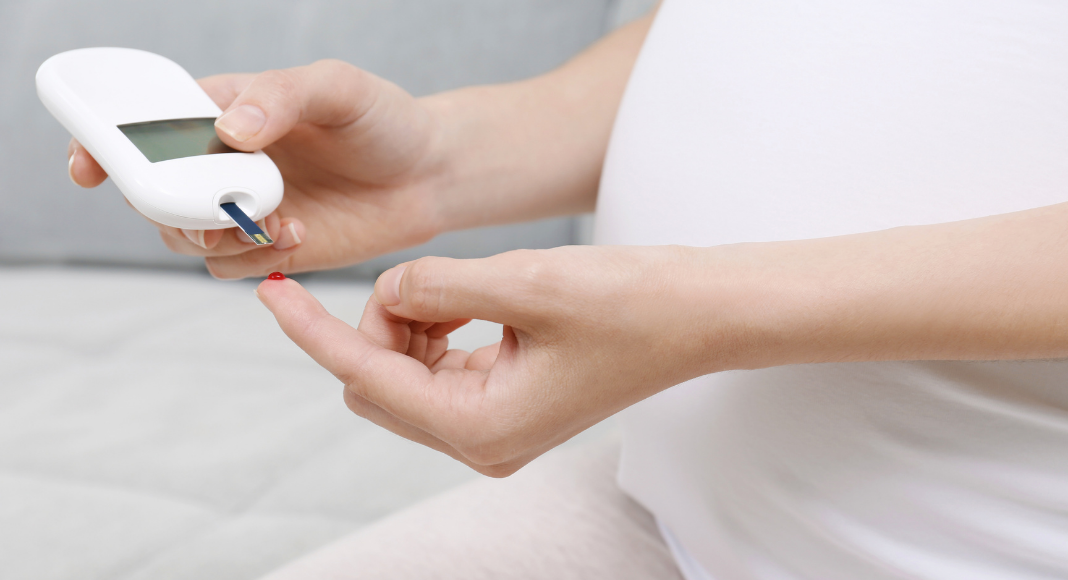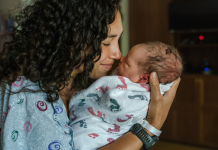I’ve been fairly healthy my whole life. I exercised often, ate fairly well, never smoked, drank socially. It was quite a shock when I got the call in my first pregnancy that I had failed my one-hour glucose tolerance test. No big deal I thought, there are a lot of false positives with the one-hour test.
So I had the painful three-hour test and got the dreaded call that I had gestational diabetes. “Thank you” was all I could muster on the phone. After hanging up, it felt like a shot to the gut. What did I do wrong? How have I failed my baby? Why is my body failing? Am I setting up my baby for being unhealthy?
I mourned having a “normal” pregnancy for the rest of the afternoon. The thing is, I know that gestational diabetes is hormone-driven and not by diet or lifestyle choices. I’m a pharmacist that cares for patients with diabetes mellitus type 2; I know how blood sugar and insulin work and their dynamic relationship around food and blood sugar my body makes on its own. I counsel patients on all the changes they need to make and that it’s attainable for control.
But I still felt like I did something wrong.
When it’s you, it feels different than when you’re reassuring a patient on the other end.
Eventually, I dusted myself off and got to work. I went to the grocery store and cleaned out all the tempting, sugary foods in my house. I started reading nutrition labels. I increased my protein intake, trying to find easy ways to add protein: add an egg to a salad, add egg whites to my oatmeal bake breakfast, have a protein shake with a high carb meal. I cut out carbs that didn’t serve me, the ones in my drinks and snacks with no nutritional value.
I pricked my finger four times a day. I got bandaids to help stop blood from smearing on everything I touched. I downloaded the blood glucose tracking apps. My day was dictated by the clock: fasting check first thing in the morning, remembering what time I ate each meal, and setting an alarm to remember to check my blood sugar an hour later after my three meals a day. Alarm after alarm, cleaning my meal prep containers, clocks in every room – these were my priorities for four months.
 I started walking after my biggest meal of the day. I tried to sleep more. I kept an eye on my blood sugars and they stayed within the desired range with diet and exercise alone.
I started walking after my biggest meal of the day. I tried to sleep more. I kept an eye on my blood sugars and they stayed within the desired range with diet and exercise alone.
After I delivered, I was relieved that my blood sugar returned to normal. I was cured by delivery! My baby had blood sugar regulation issues that bought him a short stay in the nursery at the hospital but eventually, he came home happy and healthy.
So imagine my frustration when I failed my one-hour test with my second child.
I knew what I had to do so I just started checking my blood sugar four times a day again, without doing the three-hour test. I made the changes I did before. It was hard work with a young child at home and food aversions, but I had a job to do.
My blood sugar again stayed in range and we watched things very closely while collaborating with my doctors and care team. Again I was cured by delivery and my baby was happy and healthy.
The difference between my first and second pregnancies with gestational diabetes was that I wasn’t so hard on myself. I believed the truth that my diagnosis was not my “fault” for anything I did or didn’t do. I was thankful it was caught and managed and ended up with the best prize I could get, a baby.
There is still a stigma about gestational diabetes that somehow the mother did something wrong. I felt ashamed to tell some people that I was struggling with my blood sugar because I thought they would somehow think it was something I did or didn’t do. I coach in a gym and work in healthcare so I should be the picture of health but I felt like a phony at times with this diagnosis.
As a society, we need to shift from the blame culture to the supportive culture. Mothers with gestational diabetes may be struggling in silence, dictated by their alarms and meters, worried about the effect of their actions on their child. The numbers can be overwhelming sometimes to write down, remember or think about: counting carbs, remembering blood sugar readings, keeping track of times.
It is manageable and is a heck of a lot more manageable with the support of friends and family and work. Instead of being afraid to share your diagnosis, can you ask your friends for healthy low-carb recipes? Or maybe do a meal prep swap with a friend for high-protein food. Can you share any low glycemic index snacks with a friend who is pregnant? If you know of someone with gestational diabetes, can you ask them more about it and how they’re feeling about all the changes they’ve had to make or some of the fears they have?
A diagnosis of gestational diabetes is not an end-all, be-all. It could be the canary in the coal mine to help moms eat and exercise healthier in a way that supports their own bodies and growing their baby while pregnant and following delivery. If you have this diagnosis, you are not alone and if you know someone who has the diagnosis, you can really help them.













